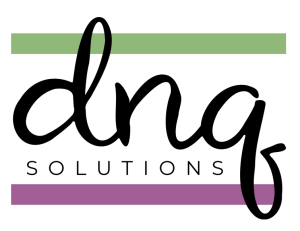
I love it when out of the blue my phone rings and the person calling is someone I have worked with before. They are looking for my help again. Why? Because something in their home isn’t working the way they want it to. Can they fix it themselves? Probably. So why don’t they just do it themselves? The reason is that they know they are more productive when someone is helping them. I’m happy that it is me they call.
In truth, most people, whether they have ADHD or not, are more productive when someone is helping them.
I often hear clients bemoan the fact that they know how to sort papers, how to remove things that need to be recycled, how to sort their clothes by color, and how to do any number of individual tasks. They question why they can’t seem to get these things done on their own.
Let’s go back to the phone call from the person seeking my help again.
This client called because their office moved to a different space. In anticipation of the move, the business had all their employees empty their offices. My client did as was directed and brought everything from their office home, dumped the boxes and bags in a room, and closed the door.
My client wanted the room back. We started going through the boxes and bags one by one. My client knew exactly what they wanted to keep at home, what was going to the new office space, and what was either trash, shredding, or recycling.
We finished reclaiming the room so quickly that we had time left in the 2-hour session to also re-organize a hall closet and de-clutter the hall.
This client told me they would never have done this without me. They wanted to reclaim the room but would have found countless reasons to procrastinate, to put off tackling it, for many more months.
Is this you?
Do you have a project you want to do but procrastinate? You may consider enlisting a professional organizer (like me) to help you.
Here are two reasons people are more productive when someone is helping
Stay focused
If you have ADHD you are easily distracted. You may say the task is to declutter the floor of your bedroom and end up sitting in the family room reading a magazine.
Why?
You found a magazine on the floor of your bedroom and went into the family room to add it to the stack of magazines on the coffee table. As you took the magazine to the family room you noticed the title of an article on the cover of the magazine that you decided to read. So, you sat down on the couch to read it. The floor of your bedroom was forgotten as you read the article.
When I am helping you, I tell you to put everything that goes somewhere else in a pile by the door. We will deliver those things when the floor of your bedroom is picked up. I will keep you focused on the current task.
Help you figure out where to start
Almost any project feels overwhelming at the beginning. Most people think about organizing a space because it is messy. They want it to look better, function better, and they want to be able to find what they are looking for. The piece of the puzzle that makes people pause is knowing how and where to start.
Another reason they have a hard time starting is that they overestimate the amount of time they need to do the task.
Just like my client who was amazed that in a 2-hour session we re-claimed a room, re-organized a hall closet, and de-cluttered the hall.
You are more productive when someone is helping you because they can help you move past pause and onto start.
Clients with ADHD often want to think through a variety of starting points for a project. An objective, non-judgmental person can help move this process along. They can talk through the starting point options until the client arrives at what they feel is a good place to begin.
A strategy is Body Doubling
Body Doubling is a strategy professional organizers use with clients. It can be used when you are working in-person or virtually.
Before we begin, we ask the client to identify the task and the goal for the session. These can be the same thing, or they may be different. For instance, the task for the session may be to sort the papers on the desk. The goal may be to reduce the pile of papers to sort through. On the other hand, the task may be to remove the clutter from the bedroom. The goal may be to have a clutter-free bedroom. In this instance, the task and the goal are the same.
How to use body doubling
When we are body doubling, we are quiet. Our goal is to be an anchor and to hold the space for our client. To be a peaceful presence. This makes them feel accountable and helps them to stay focused on the task at hand. We can answer questions when asked but we do not engage the client with conversation.
If the client strays from the task for the session, we can bring them back to the task with a gentle reminder.
It is also our job to suggest a break if the client has been hyper-focused on the task for an extended period.
Taking a break to stand up, stretch your legs, walk away from the task, and drink some water are all ways to refresh your brain. When you return to the task, you look at it with a fresh perspective and can make a renewed effort.
To summarize:
You are almost always more productive when someone is helping. The guidance, accountability, and the presence of another person acts as a catalyst to spur you into action. Look for a trustworthy someone who is non-judgmental. If you want to work with a professional organizer, like me, use the directories in NAPO and ICD, to find someone locally or someone who also does virtual organizing, again like me.
Diane N. Quintana is an ICD Master Trainer, Certified Professional Organizer in Chronic Disorganization, Certified Professional Organizer, owner of DNQ Solutions, LLC and co-owner of Release Repurpose Reorganize LLC based in Atlanta, Georgia.


As if you are reading my mind with this beautiful article. How many times we ask “why they can’t seem to get things done on their own?”
I have a client that promises every time that she will be taking care of some papers before I go back the next time, and that seems to never happen. They do like to have someone guide them through this task of decluttering, sorting and disposing. They feel at ease we tell them it’s ok to let go.
Great read Diane, thanks for sharing.
Thank you, Janet!
This is fabulous, and I can’t praise the concept of body doubling enough. As with accountability partners, there’s something about not going through it alone that provides the essential activation energy. I’ve been trying to avoid scheduling clients on most Tuesday afternoons so I can take advantage of the NAPO Authorship & Publishing SIG co-writing time for the same reason. When we are all on Zoom, muted, and writing, I’m far more likely to hunker down and tackle a writing task.
With my clients, whether it’s something they could do on their own or not, it’s always something they WOULD not do on their own, and t hat’s where the magic comes in. Recently, a client and I spent two-thirds of a session just going through all of her scraps of password credentials to see which were still accurate and which needed to be made stronger. (And then we shredded the scraps.) The idea of doing it was overwhelming, but once we developed a rhythm, the client and I made quick work of most of the technologically-challenging clutter.
I will note one thing I’ve found over the years; some clients need me (as body double) to not be quiet. The lack of sensory involvement when they work on their own is what stymies them; having me narrate and acknowledge what they’re doing as they do it (as if I were Morgan Freeman, narrating a penguin documentary) keeps them focused without getting bored. Whatever they need, though, we can give them, and “being there” is half the battle already won.
I agree, Julie. Some people like to have a narration going on. Each person is different.
I had a client say they have trouble being accountable to themselves but not to me. So when they have an appointment with me they use the time wisely and prepare for our appointment. I agree with you that working with someone can make a big difference for some people.
I am with you 100%. While we can get a lot done on our own, there is magic when you add another person into the mix. All the reasons you shared are compelling, like the body doubling effect, help with minimizing distractions and increasing focus, and assistance with figuring out where to begin.
The experience of hearing clients say, “I got so much more accomplished with your support,” is something I also hear regularly. And from the other side, when I reach out for support, I’m amazed by how much better things flow.
Thank you, Linda. I agree – it is magic!
I have one client who struggles to do just about anything when by herself. However, when I arrive, I get to work in one space and she will immediately get to work on another. In fact, she does quite well. She just won’t do it unless I’m there. The body doubling thing is real, even if you aren’t sitting side by side. I think it is just enough accountability to do what you say: get started and stay focused. It’s an amazing phenomenon, and so helpful to know, because sometimes we just need someone else around to realize how productive we actually can be!
Thank you, Seana. I think we amaze ourselves and maybe even push ourselves when we’re working with someone else. As you say, it’s an accountability thing.
Such a great article. I just worked virtually today with one of my ADHD clients and she was so thankful for the amount of work that we accomplished in two hours. She needed to get a repair man into her laundry room and was overwhelmed with the amount of stuff on her floor.
Thank you, Jonda.